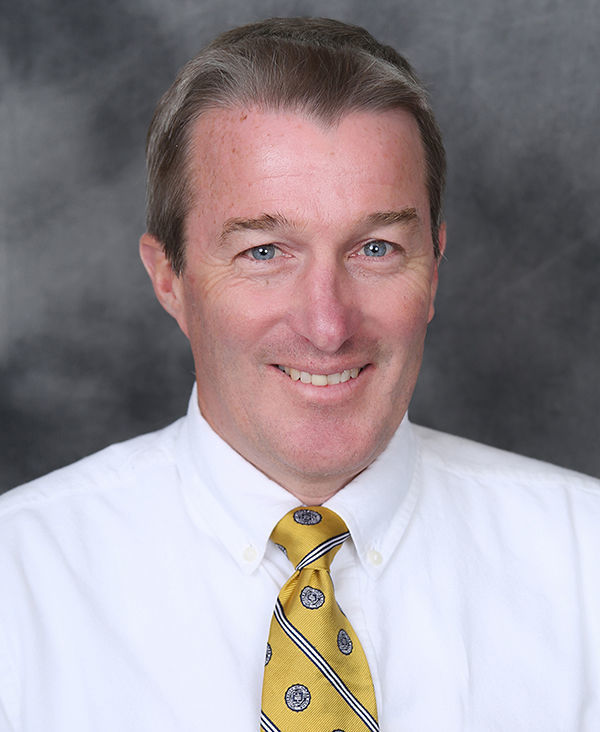 Dr. Nick Schneeman ’80
Dr. Nick Schneeman ’80
In the American health care system, the elderly can often be shortchanged.
Dr. Nick Schneeman ’80 is convinced that a typical office visit or a trip to the emergency room is simply not enough to address the complex medical issues they face.
So after practicing family medicine for 13 years, Schneeman took a chance and decided to try something new.
In 2003, he persuaded his partners in St. Paul, Minnesota, to let him start a geriatric practice called Genevive within their physicians group.
“It was me, one nurse practitioner, and a nurse,” Schneeman said. “They gave me one year to turn it into a success.”
Schneeman credits the skills he gained as a sociology major at Notre Dame with helping him confront the challenge.
“Having that broad-based liberal arts foundation was a huge advantage,” he said. “It has let me see medicine and health systems in a way that maybe my colleagues didn’t. I don’t think I would have had the ability to rise above the fray and see the whole system without it.”
The power of storytelling
Schneeman developed a model to provide compassionate and effective care for the frail elderly while also running his business successfully. From humble beginnings, the practice has flourished.
“We now have 15 doctors, 22 nurse practitioners, 60 nurses, and 10 social workers,” he said. “We take care of over 5,000 frail, elderly people. We’re doing really good things for the community.
Our people are paid well, and we’re actually making money, too.”
Schneeman approaches health care for the elderly with an eye for the rounded experience of the patient. Storytelling is a fundamental part of his practice, helping him understand medical issues in a more holistic context.
“Patients and their caregivers need to communicate more than symptoms to their doctors,” he said. “I tell them, ‘Start with the last time your mom was healthy and bring me to today.’ For some it was 12 years ago — for others, three months.”
With that narrative in hand, Schneeman uses his social science background to investigate all the possible root causes of a patient’s health problems.
“It’s complex, slow medicine, but it’s really, really fun,” he said.
“Everything I’ve done in my vocation has been built on the pillars of my Notre Dame education. It’s a remarkable community and dualistic message. You can be a liberal arts guy and go to medical school. You can take care of the frail elderly the right way and turn a profit.
You can have it both ways—and not only can you, but that’s what you’re expected to do.”
Strength in service
Schneeman, who received his medical degree from the University of Minnesota, takes on only the most complicated cases. His average patient is 85 years old and has multiple health issues like dementia, an absent family, or absolutely no financial resources.
He conducts home visits for patients on Medicare and Medicaid, sometimes visiting them in the worst of living conditions. And as he focuses on making his patients’ lives better, he is also saving money for the system by reducing the number of expensive emergency room visits and hospitalizations. Health insurers recognize these cost savings and pass significant portions of them through to Genevive.
“We need physicians who can lower costs and improve outcomes at the same time,” Schneeman said. “I’ve been driven to try to do both.”
That drive was instilled in him at Notre Dame.
“Everything I’ve done in my vocation has been built on the pillars of my Notre Dame education,” said Schneeman who also played on the first Irish varsity soccer teams. “It’s a remarkable community and dualistic message. You can compete well on the soccer turf and get a great education. You can be a liberal arts guy and go to medical school. You can do good work and make money. You can take care of the frail elderly the right way and turn a profit. You can have it both ways—and not only can you, but that’s what you’re expected to do.”
“At Notre Dame, to have that service component and faith-based component not conflict with the rest of your life is powerful.”


